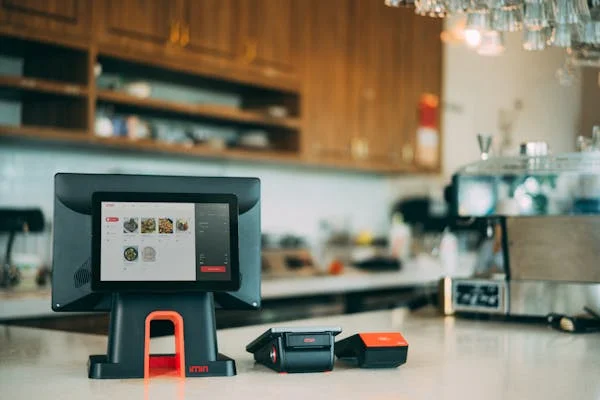Digital advancements all across the globe have really turned point-of-sale (POS) transactions into more than just an exchange of money for goods. Step into your favorite tech store, where rows of the latest gadgets tempt you at every turn. You choose a slick new gadget, check out its newest features, and proceed to the point of sale transaction. What looks like a very simple process is actually supported by a highly evolved system that has changed a great deal over the years.
POS System Evolving Over the Years
It has evolved from a mere cash register to a full-blown digital universe. The modern POS system does not simply input sales but logs inventory, customer information, and analytics in real time for the business to act upon. Evolution has emerged as one of the most important factors in modern retail and e-commerce.
Some of the key POS transaction components:
- Selection of Products: The customer chooses which item or items they would like to purchase.
- Payment Terminal: The system totals the price of the goods with value-added tax and takes payment via cash, credit or debit cards, or any other mobile payment method.
- Receipt Generation: The customer pays and a receipt is generated.
- Inventory Update: After finalization, the sale automatically recalculates for inventory so that the levels remain accurate.
Why Businesses Need POS Systems
Advanced POS systems are now a must for business giants and startups. The global point-of-sale terminal market size was valued at USD 103.83 billion in 2023 and is anticipated to grow at an annual growth rate of 8.3% by 20230. These systems make transactions go smoothly and provide them with very data-driven solutions. They provide businesses with live insights on sales trends, customer preferences, and stock levels to allow them to make informed decisions that monitor the visitor’s journey.
Cloud-based solutions have taken the functionality of conventional POS systems to a whole new level with the incorporation of omnichannel features; hence, customers can easily move between online orders, in-store pickups, and home delivery, thus combining several shopping methodologies.
Role of AI in Modern POS Systems
AI is increasingly central to modern POS, making businesses able to engage with customers and manage their operations. Besides, these AI-driven systems have the potential to personalize shopping, analyze customer preferences, and past purchases. It also includes predictive analytics for managing inventory that helps in maintaining the right stock levels by predicting demand.
AI boosts security with real-time fraud detection and allows dynamic pricing strategies to enable profit maximization. Transactions are made much easier and faster using just simple voice commands with the help of voice-activated AI assistants. Maybe the way forward for POS systems in the future will be integration at a deeper level with AI, and it will bring innovations like cashier-less checkouts or the easiest shopping experience.
Example: Toast POS
A great example of a modern POS system is the Toast POS implemented throughout the restaurant industry. It features cloud reporting and loyalty programs, and menu management specialized for food and beverage enterprises.
Next-Gen POS Solutions for Customized Businesses
Next-gen POS solutions are transforming customized businesses by offering real-time inventory management, personalized checkout experiences, and advanced customization features.
Whether you’re a digital artist, a manufacturer of bespoke products, or a seller of personalized items, these high-end systems streamline operations to meet your specific needs. For businesses that provide digital art mockups, these POS solutions enhance the purchasing process, allowing customers to select options easily and see automatic price adjustments, ensuring that every transaction is as unique as the product itself.
Conclusion
A well-designed POS system is essential for any business to thrive in today’s competitive market. By adopting modern technologies, particularly AI, businesses can not only enhance operational efficiency but also significantly improve customer satisfaction. As the retail business continues to evolve, investing in an advanced POS system will be essential for maintaining a competitive edge.





